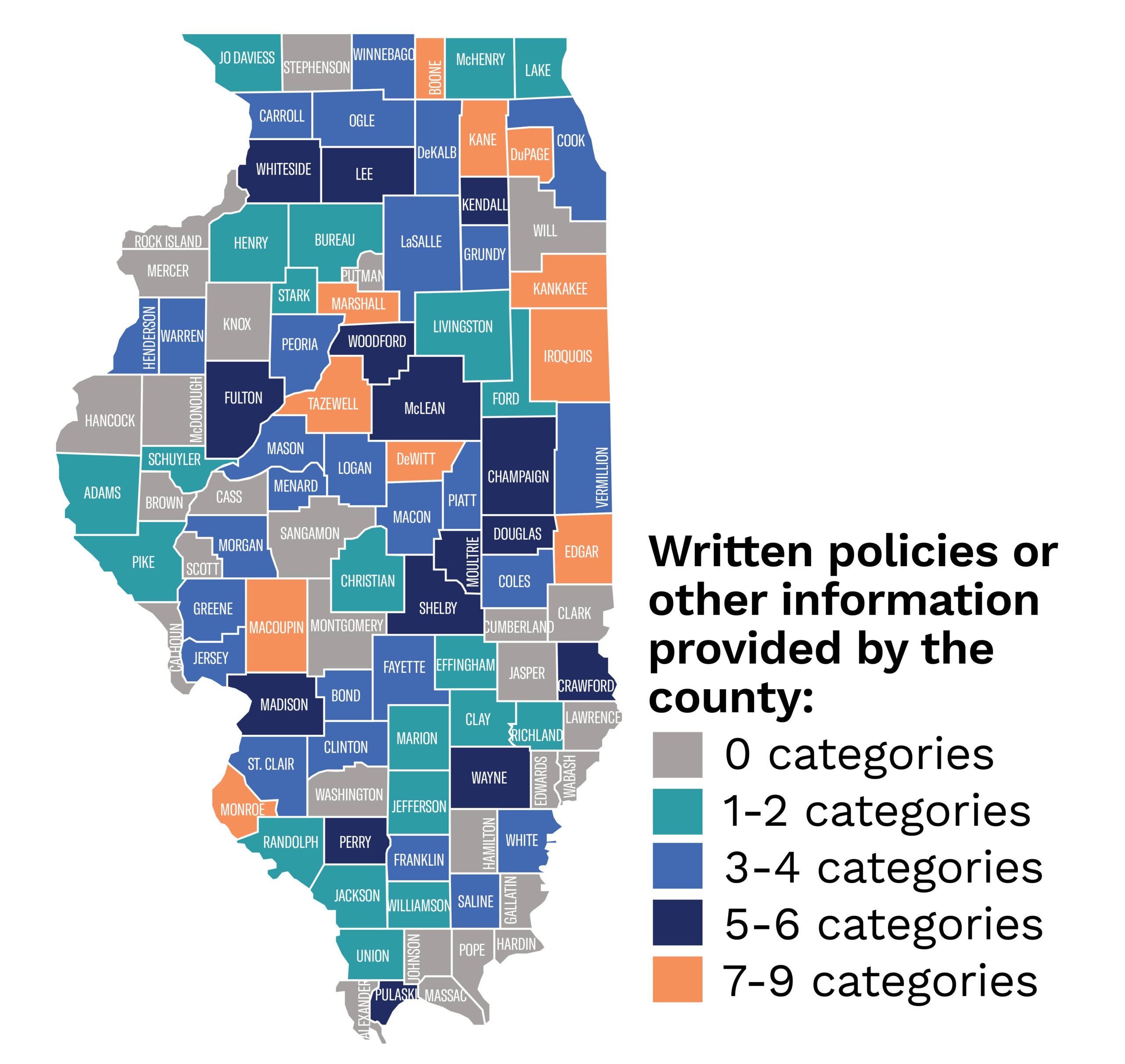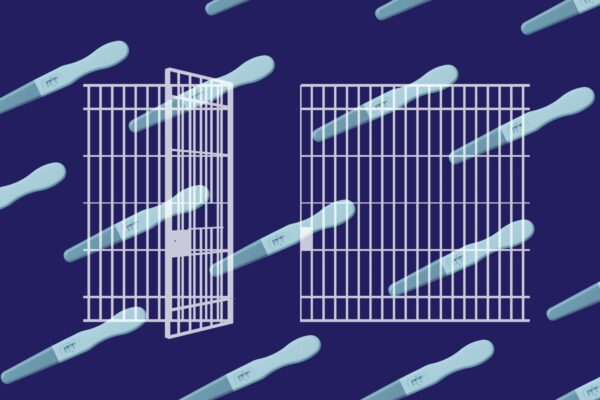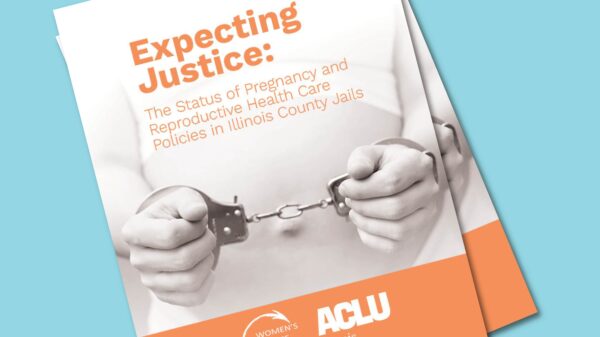By: Emily Werth, Senior Staff Attorney
Losing 67 pounds during pregnancy because you are not getting enough nutritious food. Not being permitted to visit an OBGYN until you are 30 weeks pregnant. Having a restraint chain around your pregnant belly every time you go to an appointment. Being handcuffed while you are having an ultrasound. Being threatened with solitary confinement as punishment for trying to get medical attention. Asking for information about abortion and getting only a frowny face as a response. These are just some of the experiences shared by women who have recently been pregnant while detained in county jails all around the state of Illinois in the new report Expecting Justice: The Status of Pregnancy and Reproductive Health Care Policies in Illinois County Jails.
This report is the culmination of a collaboration between the ACLU of Illinois and the Women’s Justice Institute (WJI). Both organizations saw the need for a deeper evaluation of the often-overlooked conditions for those who are pregnant or postpartum, and others needing reproductive health care, in county jails across the state. In addition to sharing the stories of impacted women, the report also surveys each county’s written policies related to provision of reproductive health care and the treatment of pregnant and postpartum individuals in local jails that were provided in response to Freedom of Information Act (FOIA) requests.
Unfortunately, we found that most counties lack the written policies that are a necessary first step to ensuring the health, well-being and dignity of people in jail custody. The report looks at nine categories of policies related to reproductive health care and pregnancy, and out of 102 counties in Illinois, not a single county provided written policies related to all nine categories. Only 11 counties provided written policies or other information related to at least seven of the nine categories.

The stories shared by impacted women in this report show how the lack of written polices is ultimately contributing to sub-standard and even illegal treatment at the end of the day. Ultimately, critical action is needed to address these issues and ensure that people incarcerated in Illinois jails are receiving appropriate and humane care.
The report urges all jails to develop written policies to ensure that they are complying with their legal obligations and meeting best practices. It also encourages the Illinois Department of Corrections to make sure it has the necessary regulations and protocols in place to review jail compliance with relevant laws through its Jail and Detention Standards Unit.
The report also recommends that the Illinois General Assembly enact measures to address current harms and determine solutions to ongoing issues by:
- Banning the unnecessary use of restraints on pregnant and postpartum individuals in all jails and prisons statewide; and
- Creating a Task Force to hear from stakeholders, collect additional data from county jails statewide, and develop recommendations for further policy change.
In recent years Illinois has made strides to become a safe haven for reproductive rights and autonomy around reproductive decision-making. But too often safeguarding such rights and ensuring true autonomy in practice for vulnerable groups like those who are incarcerated has been an afterthought. With Expecting Justice, the ACLU of Illinois and the WJI are striving to shed light on this issue and spark attention and action that will result in meaningful, lasting improvements for people in county jails all across the state.
Expecting Justice builds on work that the ACLU of Illinois has been doing around this issue for the last several years. For example, in 2022 we represented Angel Luster-Hoskins, who was detained at Vermillion County Jail during her pregnancy. Luster-Hoskins objected when jail officials attempted to coerce her into inducing her labor, instead of letting her make her own decisions about childbirth, leading to a local Danville judge appointing a guardian-at-litem for her unborn fetus – a clear violation of Illinois law.
If you are pregnant or postpartum and incarcerated in Illinois, you do have rights when it comes to your decision-making and bodily autonomy. We will keep working to make sure that those rights are actualized.


